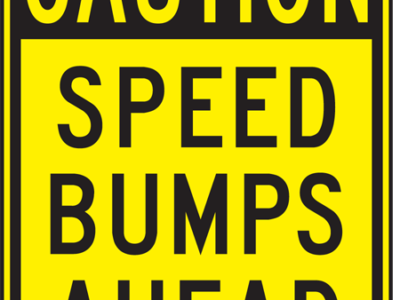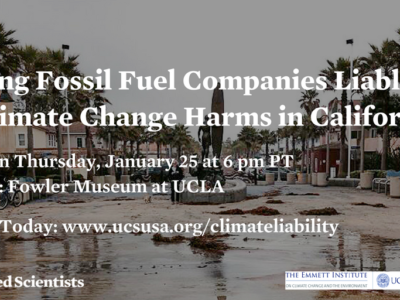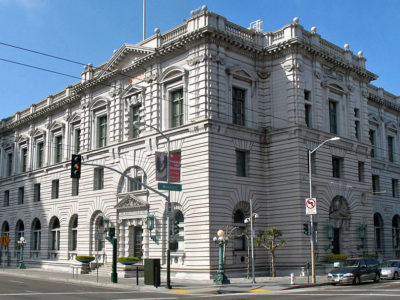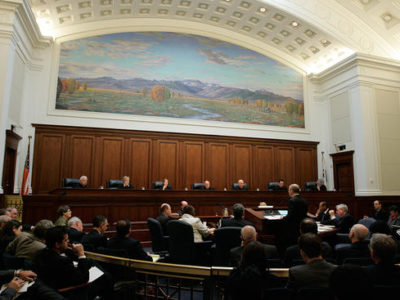Litigation
The Return of Federal Common Law
Will the federal courts take over control of climate change litigation? One judge says so.
I’m traveling but wanted to get in a few quick words about Judge Alsup’s decision today in the California climate change litigation. This is a really complex issue, and I wanted to try to unpack it a bit. In general, except where a federal statute or constitutional provision is the basis for an action, legal …
Continue reading “The Return of Federal Common Law”
CONTINUE READINGNinth Circuit rules Clean Water Act permit required for indirect discharge to ocean waters
Maui County can’t evade permitting requirements by sending wastewater to injection wells hydrologically connected to ocean waters
It was a great exam question (at least I thought so — you’ll have to ask my Environmental Law and Policy students if they agree): does the disposal of treated wastewater from a municipal wastewater treatment plant into the ground through injection wells located a short distance from the ocean require an NPDES permit under …
CONTINUE READINGEight Setbacks for Trump
Trump hasn’t had things all his own way. Not by any means.
The Trump Administration has begun some bold initiatives but it’s too soon to know how they will fare. It also had some early success with blocking Obama’s regulation in Congress. But it has also had some significant setbacks, with courts or Congress rejecting positions it had embraced. Those setbacks make it clear that, bad as …
Continue reading “Eight Setbacks for Trump”
CONTINUE READINGWhen is unoccupied habitat “critical”?
The Supreme Court will hear a challenge to the critical habitat designation for the dusky gopher frog
Controversy and litigation have been pervasive since adoption of the Endangered Species Act in 1973, but the Supreme Court has been a relatively minor player in the law’s development. By my count, the Court so far has only addressed the substantive merits of an ESA claim three times (in TVA v Hill, 437 US 153 …
Continue reading “When is unoccupied habitat “critical”?”
CONTINUE READINGSupreme Court Update: PEPTO and Rinehart
Supreme Court denies review in two important environmental law cases
Last week the US Supreme Court brought closure to two cases we have been following here at Legal Planet. First is a case I had blogged about in the past – People for the Ethical Treatment of Property Owners v. U.S. Fish and Wildlife Service – a challenge to the constitutionality of the federal Endangered …
Continue reading “Supreme Court Update: PEPTO and Rinehart”
CONTINUE READINGCities are suing oil companies for climate change harms. Could they win?
Join UCLA Law Emmett Institute and Union of Concerned Scientists for January 25 evening talk on new climate lawsuits
Who should pay for the significant costs that cities and other local governments incur in responding to climate change? Los Angeles is the most recent city to explore the idea of suing fossil fuel companies for these harms, following in the footsteps of San Francisco, San Mateo County and a growing cohort of other jurisdictions …
Continue reading “Cities are suing oil companies for climate change harms. Could they win?”
CONTINUE READINGThe Ninth Circuit Court of Appeals’ Most Important Environmental Law Decisions of 2017
Constitutional Issues, Water Law, Native American Rights Dominate Court’s Environmental Docket
Happy New Year! As we move into 2018, let’s take a look back at the most significant environmental law decisions issued by the U.S. Court of Appeals for the Ninth Circuit in 2017. Conventional wisdom is that the second most important federal court in the nation (after the U.S. Supreme Court) is the D.C. Circuit …
CONTINUE READINGWhat’s Ahead in 2018? The Top Five Things to Watch For.
2018 will be a big year for environmental law, either for good or for bad.
2016 was a huge year in environmental law, with big achievements like the Paris Agreement and huge disappointments like the presidential election. By contrast, 2017 was pretty predictable: Trump did just what he promised during the campaign. The year ahead of us will have some big events to watch out for. Here are my nominations …
Continue reading “What’s Ahead in 2018? The Top Five Things to Watch For.”
CONTINUE READINGThe California Supreme Court’s Most Important Environmental Law Decisions of 2017
CEQA, Climate Change, Cannabis & Regulatory Takings Top the Justices’ Environmental Docket
As 2017 comes to a close, let’s take a moment to assess the California Supreme Court’s most significant environmental law decisions of the year. There are a large number of decided cases to choose from: as has been true over the past decade, in 2017 the California Supreme Court devoted a substantial portion of its …
Continue reading “The California Supreme Court’s Most Important Environmental Law Decisions of 2017”
CONTINUE READINGTen Environmental Lessons of 2017
We’ve learned a lot in the past year, some good, a lot bad.
No one can say it’s been a boring year. In many ways, it’s been a worse year than we expected, because the Trump Administration has gone all in on its anti-environmental vision. But there have also been some heartening positive developments. Here are some of the most important things, good and bad, that we’ve learned …
Continue reading “Ten Environmental Lessons of 2017”
CONTINUE READING











